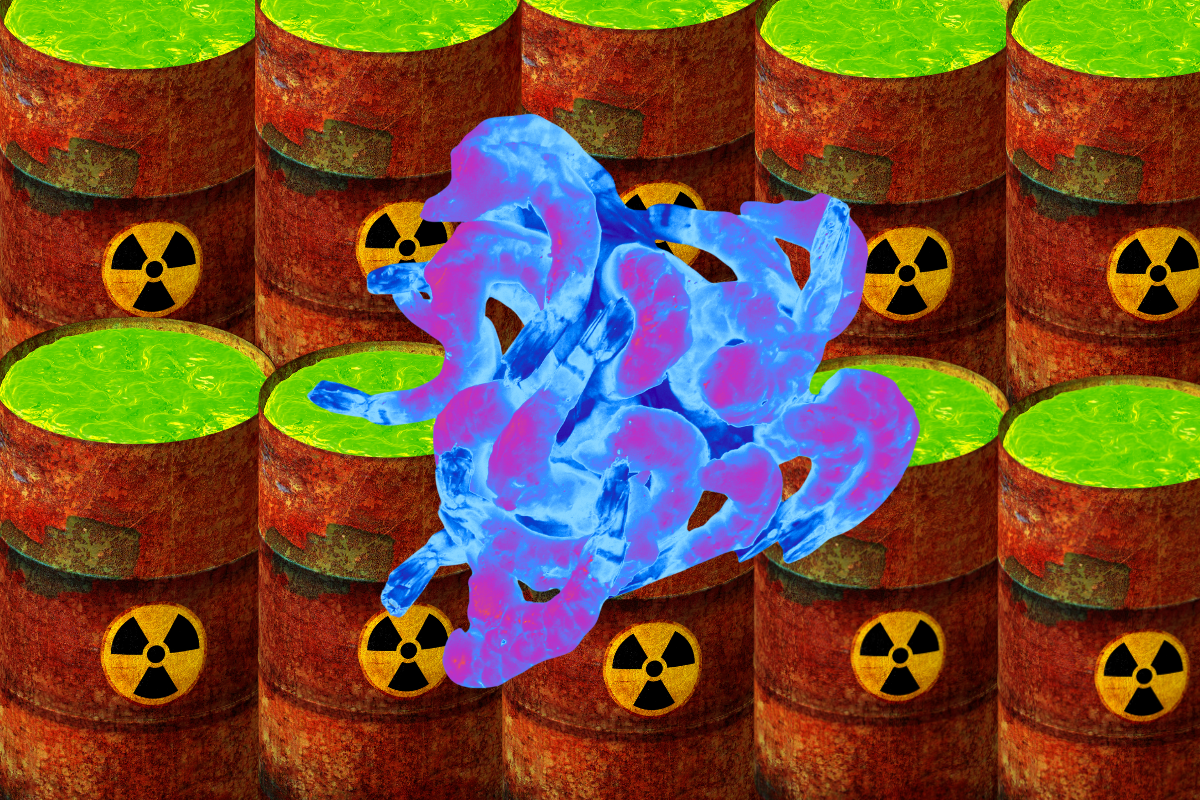
New Times artist conception. Source photos by stu_spivack (shrimp) and Burnt Pineapple Productions (radioactive bins) via Flickr

Audio By Carbonatix
The Food and Drug Administration (FDA) is warning Floridians to avoid certain frozen shrimp sold at Walmart over concerns that the prawns might be, uh, how to put this?…slightly radioactive.
On August 19, federal health officials announced that the radioactive isotope Cesium-137 had been found in shipping containers of imported frozen shrimp that had arrived at four United States ports, including Miami, from the Indonesia-based company PT. Bahari Makmur Sejati.
The FDA cautions people against buying or eating certain types of Great Value brand raw frozen shrimp sold at Walmart (specifically the Great Value brand frozen raw shrimp lot code 8005540-1, Great Value brand frozen raw shrimp lot code 8005538-1, and Great Value brand frozen raw shrimp lot code 8005539-1), because they might be contaminated.
“If you recently purchased one of the impacted lots of Great Value raw frozen shrimp from Walmart, throw it away,” an FDA advisory reads. “Do not eat or serve this product.”
Consumers, distributors, and retailers should not eat, serve or sell impacted lots of Great Value raw frozen shrimp sold at Walmart.
For more information on lot codes, production dates and actions you should take read FDA's advisory. https://t.co/eO87TdXbtx pic.twitter.com/vU1Brqg89Q
— U.S. FDA Human Foods Program (@FDAfood) August 19, 2025
According to the FDA, all containers that tested positive for the material were denied entry into the U.S., and no contaminated product has entered U.S. commerce. Officials say products from the Indonesian company are banned from entering the U.S. “until the firm has resolved the conditions that gave rise to the appearance of the violation.”
A Walmart spokesperson confirmed the company immediately recalled the products after being asked to do so by the FDA.
“At this time, no product that has tested positive or alerted for Cesium-137 (Cs-137) has entered the U.S. commerce,” the advisory reads. “FDA is working with distributors and retailers that received product from PT.”
According to the FDA, Cesium-137 is a “radioisotope of cesium that is manmade through nuclear reactions.” Because it’s found widespread across the globe, trace amounts of the material can be found in the environment, “including soil, food, and air.”
Donald Schaffner, a food safety expert at Rutgers University, told the Associated Press that the risk from the recalled shrimp is “quite low.”
However, while the levels of Cesium-137 found were far below the agency’s safety threshold and posed no immediate health risk, officials warned that long-term exposure to contaminated food could increase cancer risk.